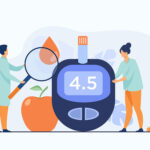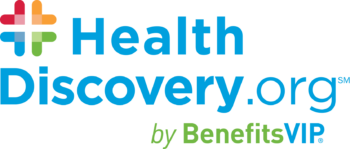Modern medicine and pharmaceuticals can produce some incredible outcomes. However, it is far from an exact science. Finding the most effective, or even any effective, treatment can sometimes involve a lot of trial and error. This isn’t ideal for many reasons, including excess costs, delayed treatment and a worsening patient experience. The emerging field of pharmacogenetic tests aims to offer doctors precision insights into how individual bodies respond to drugs.
Pharmacogenetic Testing & Your Response to Medication
Our DNA contains genes that determine traits like eye color, hair color and height, and many aspects of your health. Genetic tests can be used to determine the likelihood of developing certain cancers for instance. In a similar way, pharmacogenetic (also called pharmacogenomic) tests look at genetic markers to help determine how drugs may affect your body.
Specifically, pharmacogenetic tests can help determine if a particular medicine would be effective, the best dose, and the potential for serious side effects.1
The common blood thinner warfarin offers examples of these interactions and their impact on treatment. Some people are warfarin sensitive. Their body doesn’t break down the drug as effectively meaning it stays in their body longer. The average dose could increase the risk of internal bleeding, serious health problems or death.2
Inversely, some people are warfarin resistant meaning they need a higher dose for it to be effective. If they’re given the average dose, they may not get the benefit of the medication. Researchers have identified which genes are connected to these effects, and a pharmacogenetic test can reveal if someone has those genes and provide information on appropriate dosage.3
Benefits of Pharmacogenetic Tests
Overall, these tests offer doctors more precise information about how your body may respond to a particular drug. This information is very valuable and will help doctors determine the best treatment plan for your condition. Currently, pharmacogenetic tests can provide information on medications to treat conditions including cardiovascular disease, lung disease, HIV infection, cancer, arthritis, high cholesterol and depression.4
Pharmacogenetic tests can help improve treatment effectiveness. By eliminating drugs that may not work, doctors can get patients on the right medication at the right dose more quickly. If the test finds that you have a gene associated with a particular drug reaction, the prescriber may adjust the dose or prescribe a different medication all together.
Another advantage is improved adherence to the treatment. Patients are less likely to take medication as prescribed if they don’t think it is working. They may go back to their doctor, or worse, stop taking the medication altogether. That can delay improvements in their condition or make it worse.
Most importantly, pharmacogenetic tests can flag the potential for serious reactions. The Centers for Disease Control and Prevention estimate that serious side effects or reactions result in approximately 1.3 million emergency department visits each year. Understanding the risks certain medications may pose to individuals based on their DNA could prevent many of these medical emergencies.5
Limitations of Testing
Researchers first need to identify a link between certain genes and a certain response to medication. Establishing these gene-drug links takes a lot of research and can be slow going. The FDA has only recognized and evaluated about 200 pharmacogenetic associations. While this includes drugs used to treat many common conditions, it’s still a relatively limited list.
If you aren’t taking or considering taking one of the studied prescriptions, then a pharmacogenetic test would provide limited benefit.
Each test can only look for one gene-drug interaction. A lab can run multiple tests from a given sample, but they only return information based on the specific genes requested. Don’t expect a pharmacogenetic test to return comprehensive information on your body’s response to all medicines. However, most people would only be interested in a few conditions or prescriptions and not in medications for conditions they don’t have.
Access and Coverage
If you and your doctor determine that you would benefit from a pharmacogenetic test, you will need a prescription. Submitting a sample of DNA for testing is easy and involves collecting blood, saliva or a cheek swab. From there, it will be sent to a lab to perform the tests and produce the results.
Consult your organization’s employee advocacy team or insurance company to see if pharmacogenetic testing is covered. Whether your insurance covers the test will depend on your particular insurance carrier and plan. Even if the test is covered, there may still be out-of-pocket costs. Your plan may be more likely to cover it if there is a clear medical need.
As medical technology and knowledge progresses, precision medicine like pharmacogenetic testing is becoming more viable, available and promising. While it is still in early stages and only available for a limited selection of drugs, pharmacogenetic testing could make a big difference for the right patients. It can provide doctors with valuable information on how to treat an individual’s condition based on their unique DNA.
1 Mayo Clinic, “Pharmacogenomics for Patients”
2 MedlinePlus, “Warfarin Sensitivity”
3 MedlinePlus, “Warfarin Resistance”
4 Mayo Clinic, “Precision Medicine and Pharmacogenomics”
5 Centers for Disease Control and Prevention, “Adverse Drug Events in Adults”














